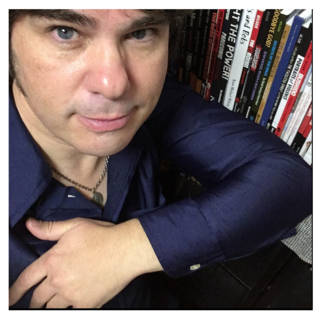A Quote by Pankaj Mishra
Once you get past the grand normative claims made in the West for literature, especially the novel, in the post-Christian era - that it is a secular substitute for religion, hallmark of modern civilization, a priori liberal and cosmopolitan, with authors appearing to implicitly embody such pious ideals - you encounter a less agreeable reality: parochialism, blinkered views, even racial prejudices of the kind the bourgeoisie have held everywhere.
Quote Topics
Agreeable
Appearing
Authors
Bourgeoisie
Christian
Civilization
Claims
Cosmopolitan
Embody
Encounter
Era
Even
Everywhere
Get
Grand
Hallmark
Held
Ideals
Kind
Less
Liberal
Literature
Made
Modern
Modern Civilization
Novel
Once
Parochialism
Past
Pious
Post
Prejudices
Racial Prejudice
Reality
Religion
Secular
Substitute
Views
West
Related Quotes
The need of a constantly expanding market for its products chases the bourgeoisie over the entire surface of the globe. It must nestle everywhere, settle everywhere, establish connections everywhere. The bourgeoisie has, through its exploitation of the world market, given a cosmopolitan character to production and consumption in every country. To the great chagrin of reactionaries, it has drawn from under the feet of industry the national ground on which it stood.
Like the kind of voter who has been turned off to [Donald] Trump, who would normally vote Republican in an election like this, that`s who we`re talking about, can they get past - even if he comes to a position that`s more agreeable for them, a tone that`s more agreeable, can they get past the last year?
We need to employ a secular approach to ethics, secular in the Indian sense of respecting all religious traditions and even the views of non-believers in an unbiased way. Secular ethics rooted in scientific findings, common experience and common sense can easily be introduced into the secular education system. If we can do that there is a real prospect of making this 21st century an era of peace and compassion.
Some experts say we are moving back to the pre-antibiotic era. No. This will be a post-antibiotic era. In terms of new replacement antibiotics, the pipeline is virtually dry. A post-antibiotic era means, in effect, an end to modern medicine as we know it. Things as common as strep throat or a child's scratched knee could once again kill.
We are not post-racial. And in many ways we don't even know how to have a conversation about being post-racial. Until we get out of that old-school way of thinking about race and opportunity and the ability to transcend some of the past of this country, then we're going to be stuck in the 20th-century conversation about race.
There is no ground whatever for the claim, so often made by religious apologists, that these ideals are specifically Christian and originated with Jesus. What were specifically Christian were some of the less enlightened teachings, which have done untold harm. Christians claim that organised Christianity has been a great force for good, but this view can be maintained on one assumption only: that everything good in the Christian era is a result of Christianity and everything bad happened in spite of it.
We may say, in a broad way, that Greek philosophy down to Aristotle expresses the mentality appropriate to the City State; that Stoicism is appropriate to a cosmopolitan despotism; that stochastic philosophy is an intellectual expression of the Church as an organization; that philosophy since Descartes, or at any rate since Locke, tends to embody the prejudices of the commercial middle class; and that Marxism and Fascism are the philosophies appropriate to the modern industrial state.
In the future, we've forgotten it. It's disappointing to find out that the past is the present is the future. Nobody wants that. And yet, that's what it is. Maybe it's a kind of surrealist move, to use language like "post-racial" - thinking that if you create the language for it, it will happen. I wish it worked that way. But that's not our reality.







































